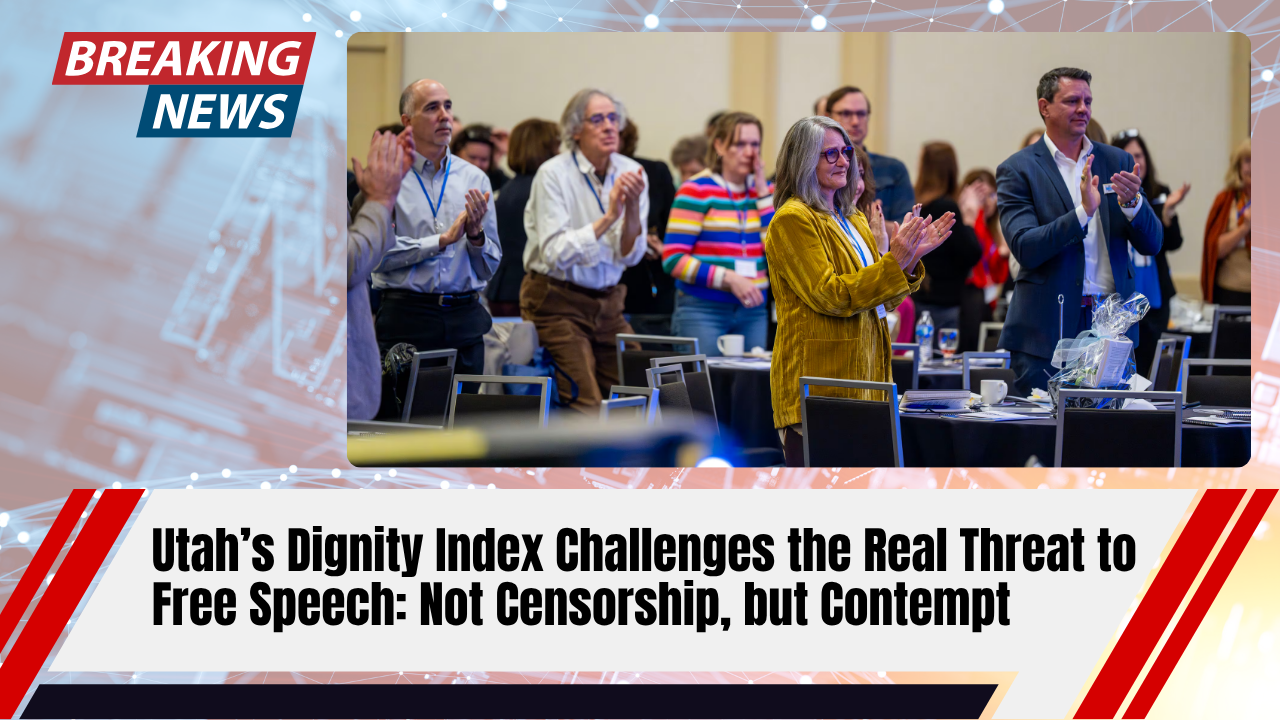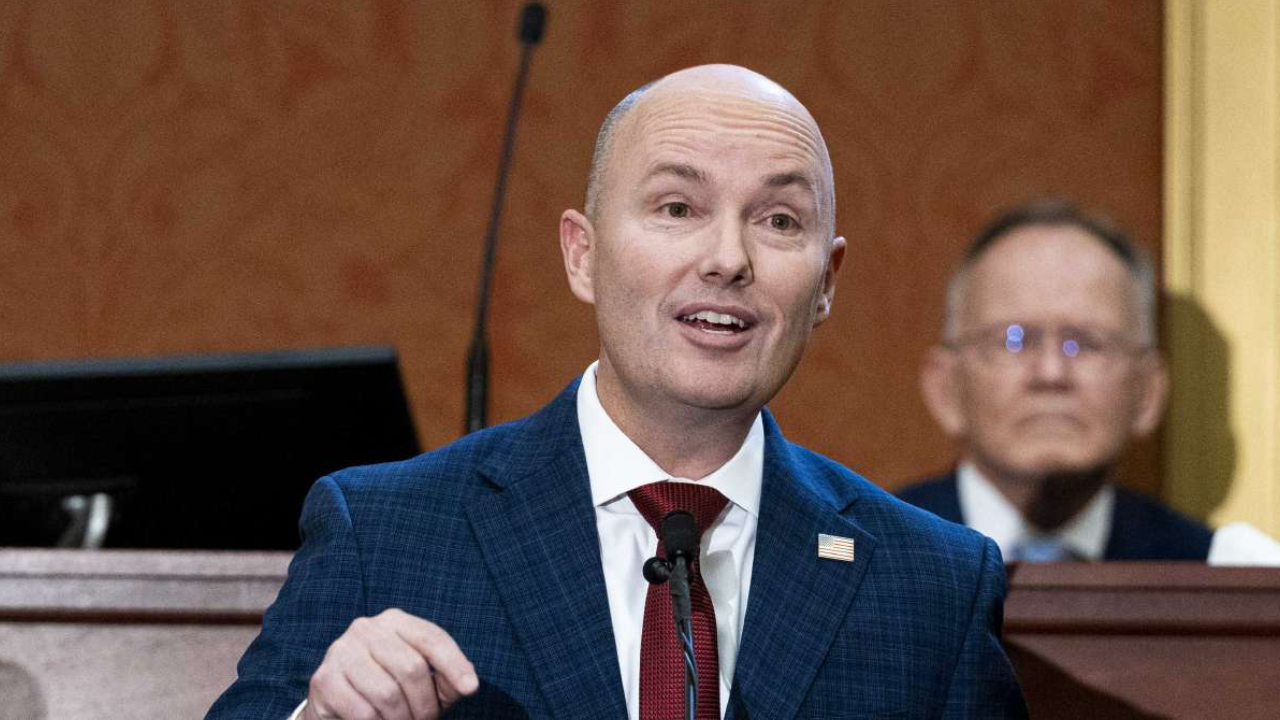In a time when political shouting matches dominate the national stage, a Utah-based initiative called the Dignity Index is asking a different question: Is the biggest threat to free speech really censorship — or our growing culture of contempt?
At a leadership summit held Monday in downtown Salt Lake City, hundreds of civic leaders, educators, and community members gathered to explore how restoring dignity in political discourse might help counter division and violence spreading across the U.S.
A movement born from civility — not silence
The Dignity Index, co-created by Tim Shriver, rates public speech on an eight-point scale, rewarding words that show respect for opponents and calling out rhetoric that fuels outrage or dehumanization. The project, part of nonprofit UNITE, launched a pilot program in partnership with the University of Utah in 2022 to analyze campaign messaging with help from students.
“We’re not at risk of devolving into violence — we’re already in a state of it,” Shriver said. “The normalization of political violence has become far too acceptable. Our goal is to build a culture that values human dignity, not contempt.”
Utah was chosen as home base because of its reputation for community cooperation and its faith-based emphasis on civility. Shriver cited teachings from LDS Church leaders like President Dallin H. Oaks and the late President Russell M. Nelson, who have long urged members to “love your neighbor” amid political divides.
Utah’s moment of reckoning
The summit came after two tragedies that rocked the political and faith landscape: the assassination of conservative organizer Charlie Kirk at Utah Valley University earlier this fall, and a shooting at a Latter-day Saint meetinghouse in Michigan that left four dead. Both events underscored the urgency, organizers said, of rebuilding empathy and restraint in public dialogue.
“Utah’s greatest strength is its social capital — our ability to connect, solve problems, and build trust,” said Natalie Gochnour, director of the University of Utah’s Kem C. Gardner Policy Institute. “That’s what gives us hope that we can lead the way.”
Pushback from conservatives
While many attendees praised the initiative, some conservatives voiced skepticism, warning that tools like the Dignity Index could easily slide into ideological policing.
“I don’t want it to be where you’re capitulating your values just to be nice,” said Jamie Renda, founder of the conservative nonprofit Path Forward. “You can’t use it to limit free speech or discourage hard conversations.”
Critics like author and activist James Lindsay argue that the Index repackages “woke” social-justice ideals under new branding. “It’s designed to pressure people into thinking that going ‘woke’ is an improvement on American values,” Lindsay said.
But Shriver rejects that claim. “We’re the opposite of cancel culture,” he said. “The real threat to free speech isn’t the government or social media moderation — it’s outrage and contempt. When people feel unsafe to speak, democracy withers.”
The self-censorship epidemic
That concern isn’t unfounded. A 2020 Cato Institute poll found that 62% of Americans say they self-censor their political views. Subsequent studies from Populace Insights and the University of Michigan confirmed similar trends — across party lines.
By using the Dignity Index as “a mirror,” Shriver said, people can reflect on how they communicate and foster environments where disagreement doesn’t lead to self-censorship or hostility.
“The average American is funding the culture of outrage,” Shriver said. “Stop feeding it. Don’t share the influencer who profits from hate — just scroll past.”
He added, “I hate to disappoint conservatives, but it’s not just liberals who are full of hate. And I hate to disappoint liberals, because it’s not just conservatives. We all are.”
As the Dignity Index expands beyond Utah, its founders hope to make “respect” not a political tactic, but a civic standard — one that reminds Americans that disagreement doesn’t require dehumanization.



